5 challenges for professionals

Photo by Jukan Tateisi on Unsplash
The working world can oftentimes be incredibly intimidating and that goes especially for bright and new professionals. However, no matter how strange the world in the professional field may seem, or the amount of learning that comes with the workforce, there are a few things to keep in mind. These five challenges are common amongst beginning professionals. Even still, there are ways to mitigate these challenges and better oneself in preparation for the growth that occurs from experiencing these challenges.
- Decisions are a difficult “stranglehold” of sorts and no such single decision will be best for every single person; however, decision making is going to be a key part of the professional workforce. As such, being comfortable in decision making is incredibly important. From timely decision making to a heavily-weighted call in certain scenarios, practicing making these difficult decisions will help greatly in developing this skill. In other words, practice makes perfect! Not everyone can make the correct or most fitting judgment calls right from the start and that goes for anyone beginning their journey in the professional work field. Even prior to entering the professional workforce, decision-making and critical thinking, in general, are not of the utmost taught skills. However, this life skill and the decision-making process, in general, are not only vital in the professional field, but in daily life as well actually. Often times, our best working selves emerge through good practice outside the workplace, which is why it is all the more important to continue practicing critical thinking and decision-making day-to-day. Keeping the decision-making process in mind while being approached with any issues along the way will help immensely. Even within daily activities, we are always forced to make decisions from choosing where to have lunch or even deciding for a workmate what tasks to complete that day. Though these smaller decisions do not appear to hold much weight in hindsight, the practice of such and being able to understand that straightforward answers are always more decisive than otherwise is a life skill that can be developed. The act of making decisions can be rather nerve-racking at times and especially in a professional setting. That is completely normal! Being pitted in experiences that we are rather uncomfortable with is a part of this growth no matter the position from entry-level, management, and beyond. Remember that you are in control of any decisions that you are personally making. At the end of the day, these decisions will affect where you are and what you might encounter later on as well. This goes for the professional field, especially where you can find yourself making even bigger judgment calls that require a bit of personal thought. As such, maintaining composure and understanding what decisions you should make are vital in this growth wherein you become the deciding factor on what occurs, professional or otherwise. There is no easy process of decision making as any would have levels of depth that are unlike others. This becomes the challenge of approaching decision making actually. As mentioned before, decisions are a “stranglehold” of sorts that somehow feel consistently against you. However, it is important to remember that though decisions are difficult to make and coming to the conclusion of, they are just as necessary. No one can truly and definitively say what is the correct decision to make in even the most crucial settings; however, a decision made is arguably better than one that was never completed. In other words, following through with a decision creates a ground of leadership that would have otherwise been overlooked. This takes practice upon attempts in decision making and you will have many instances where your decision is necessary. Choosing your routes and strategies will come with time, but that is also part of the growth process in assessing what decisions you make. Remember that decision making will never come easily regardless of the scenario; however, the process of learning is the start of being more proficient in at least the groundwork.
- Time management is extremely crucial when entering the professional workforce. One of the first things I have personally seen is that getting overloaded with work material is all the more normal, especially upon entering the professional scene. When that happens, becoming overwhelmed and pushing off tasks to the side become almost habitual; however, this can be greatly detrimental to the workflow and the aforementioned decision-making process. Remember that decision making is one of the largest skills to become proficient. However, in order to get to that point of proficiency, there are other steps involved to reach that point. Therefore, it is important to understand where your decision making is needed most and, as such, time management becomes a key factor in building success and works as a foundation to build off when beginning the professional work journey. Time management itself can apply to various aspects of life, from business to personal well-being. The balance of having both is what differentiates the more successful professional work goers. This might sound easy initially to incorporate such practices in daily life; however, as mentioned previously, the task load can often become rather cumbersome. Reaching deadlines in work, meeting the needs of your teammates, ensuring your customers are well taken care of, and all the while meeting your own personal needs. These personal needs can include your well-being, both mentally and physically. Thus, making sure there is an adept amount of time and investment into personal well-being is vital in not only your own life outside of the professional field but also in the workforce as well. Personal life can often trickle into the work-life and having a sense of separation between the two will surely increase your productivity in all aspects. Your personal time is valuable as is anyone else’s and your workmates will know this. Communicating efficiently and effectively makes all the more difference, especially in professional work environments. Having the ability to know your boundaries and where you might be spreading yourself thin is also equally important as the aforementioned self-care. The biggest challenge, therefore, is to stop spreading yourself too thin if you have already done so. Not one person can fulfill the needs of everyone whether professional or personal. This is important to remember considering that the workforce consists of multitudes of levels and teams, that of which bind together in a system that fulfills the tasks necessary to meet the workflow. As such, your team members are there for you as is many others who you may come across in your daily interactions. Again, this goes for both the professional as well as the personal level. Allocating your time properly and remaining aware of where you might be more needed than other areas becomes extremely important. Burnout from work exists and that can also affect you greatly not only in the work setting but also personal life. This would become a domino effect and we are trying to mitigate such consequences of being unable to meet these time management goals. Whether developed or not, time management can surely be worked upon. That is to say, it is never too late to start managing one’s time and thereby increasing productivity in oneself. You will find that knowing when enough is enough or whenever there are aspects of life in which your responsibilities grow larger, is completely normal. The fluctuation between where you put yourself and where you are needed most will often times move up and down. There is no standard or pre-set on how to time manage; moreover, where you manage your time and allocate yourself is at your discretion, where you see yourself most needed. To put it simply, the biggest challenge of time management is understanding when to stop yourself from taking on more than you are capable of. We all like that we can handle most anything that comes our way; however, we are only human at the end of the day and we require the boundaries sometimes in order to truly fulfill what we need to do, whether work-wise or personally. The key though to effective time management is as mentioned, where you need to be, what is expected of you, and where you find yourself mentally. An overload of information can often lead to the downfall of oneself, which actually comes about from being in too many places at once. The time you spend on every task generally is a starting point that you can take away here. Where do you find yourself spending most of your time? Are there areas that you would like to focus more on? In what ways can you balance all of this? Maybe placing oneself in another area for a specific period of time or focusing on a certain task might benefit you in the long run. That is to say, try to stop spreading yourself too thin – we simply do not have enough time in the day to tackle near everything we want to; however, managing that time becomes all the more important in light of those questions.
- You can have the “noise” around you – there is no mistaking that this factor will not disappear as with any large company or organization. Upon entering the professional workforce, you can find yourself being a bit overwhelmed by the sheer amount of tasks in front of you. As mentioned previously, time management is a highly important factor upon this entrance. You have to decide where you are needed most, what decisions to make when those decisions should be implemented, and much more. This sounds as though there could not possibly be a way to sift through all the noise; however, managing such noise is just as equally as important as the first two points of decision making and time management. In other words, handling the multitudes of “fires” per se around you, whether certain departments deem urgency on various tasks that you simply do not have the time for or even when deadlines become nearly unbearable. How you handle that noise and your reaction to these multitudes of scenarios where you may find yourself is what matters most. Another important part to note, and arguably the most important for myself as I entered the professional world personally, is that this noise can often distract you from tasks that may be more worth your time than others, at least at those pivotal moments of differentiating importance. This means there will be several distractions and commentary that might seem rather discouraging, more or less intimidating actually. Having someone watching your back to handle any falls along the way, high expectations from your colleagues, and even personal life matters that could be in the back of your mind can all be considered “noise” in a way. However, although you may not be able to control these situations and when they arise specifically, you can certainly control your reaction to them. The sheer amount of noise can be rather discouraging; however, pushing yourself to sift through this noise and maintain that same calm and collected composure as with decision making can prove to be rather helpful. This is certainly easier said than done, but with much practice on reaction times and being able to control these noises, this will become engrained in an almost muscle memory-like state.
- The fourth challenge and a personal one for anyone leading into the professional field is the past. That is to say, the past can often chase into the present-day even. More often than not, this applies to personal life matters; however, the past can also apply professionally where you may find yourself in a new position yet noticing some similarities between where you previously worked to the present position. Whether it comes to personal experiences in the workplace or simple uncertainty in oneself, these can often prove to be one of the difficult challenges as we ourselves are often our biggest obstacle. As such, there needs to be a large distinction between yourself and the other people around you. Your new team, your new environment, and your new colleagues are there to help and guide you as much as they need you. You were placed in the position you are for a reason and you were chosen for those aforementioned reasons. Whether you deem yourself worthy of the position is quite literally what you make of it. Are you going to become the new team lead, taking charge or will you let your past experiences in a time define where you are now? That is a big question to ask when attempting to escape this past image of yourself. Effectiveness in the workplace and increasing your customer base begins with yourself. As a matter of fact, who you are now is so crucial to your success that your team members rely on that energy. What you bring to the team and to your customer base is distinctive in comparison to others. Your experiences will not ever be the exact same as another and that is honestly what creates success. The past can be a challenge – that much is a given; however, important to remember though is that you are vastly different than your peers and workmates. You are in a position that is very much different than the others around you so leading into operations, you will need to make those distinctions in order to work at your most optimal. From taking charge in decisions to sheer time management and separating the fires along with the noises that you may come across are crucial in your success, thereby increasing your customer base actually.
- The fifth challenge, but certainly not the lightest to note, is that there will be a failure in the face of making such large decisions. You will be in the face of failure actually, confronting such obstacles. I want to emphasize that this is completely normal! Failure will happen and accepting that is going to be a process that you will surely become more accustomed to. I mentioned before that there will be many experiences you will have from day to day life and into the professional workforce, especially when starting out. In light of that, there are also going to be many accounts of failure; however, that failure is oftentimes what shapes us into greater leaders and thereby more efficiently working professionals. Maintaining a certain mental resilience in light of failure becomes the greatest way in order to combat that confrontation of failure. Upon attempting a new process or seeing where a certain judgment call goes, there will never be an instance where you will be one-hundred percent correct always. There will be failure ad there will be many instances of such; however, try again. If a certain process you found that was rather successful in your experiences ended up not fairing so well in practice, perhaps try again if you deem necessary. If there is a way you came across to a teammate or colleague that you found unfavorable, try again in a different setting or using another strategy. You never know what could happen and especially when it comes to interpersonal relationships in the professional field. Your ultimate success and your mindset – you are in control of the two and how you achieve such levels. Accepting that there will be failure becomes a forefront challenge that you will face no matter the day and no matter the position or setting. Your resilience will be tested – that is a definitive given. However, understand that you will miss one-hundred percent of shots you do not take. Just because there is a failure in some lights does not mean you will fail altogether. Sometimes, losing a battle can result in the winning of a strategy in hindsight. This applies, again, on both the professional as well as the personal levels mentioned previously and actually within each challenge that is faced for those starting the professional work field. At the core, failure is experienced in all lights and there is beyond a shadow of a doubt that failure can be disheartening. Understanding that this obstacle is not simply going to disappear is a starting point for anyone wanting to overcome this specific challenge. Even looking into yourself, there have probably been many times where you doubted yourself and where you did not quite know whether or not you would come out of an experience successful. However, there are certainly times where you have been successful. This same concept lingers in the professional field and, as such, confronting failure headstrong remains an experience necessary in order to grow. That is to say, growing oneself begins at these obstacles in a sense. The statement remains that you never know when you will be successful, just that the process to get there takes much trial and error. Perhaps there are going to be instances where there is more error; however, if you have not ever attempted any decision or strategy, you will never know the outcome. Simply put, do not be afraid of failure because even if you do not end up successful in one area, you will at least have the experience carrying forward on were in that area that was not as effective. Easier said than done once again, but this is a rather large challenge skewed into smaller-scale scenarios in which you might find yourself in. Albeit, perhaps you do not wish to confront failure, but no one can escape the fact that there will be such experiences. Remember to be resilient! There are going to be many instances where you can prove to yourself the successes you worked for, growing from failure. The largest takeaway here though is that you will need to confront such failure yourself and learn from it. The journey in the professional workforce is not about the number of failures you had, but the learning experiences you have made and what you have done to implement those insights leading onwards.
Angelos Derlopas, MSc, MCC
First published at Forbes Coaches Council, 2020












